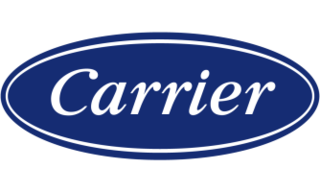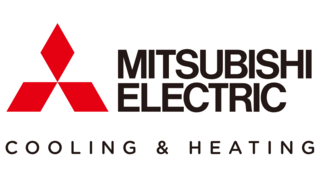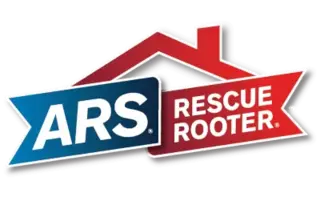5 Best HVAC Companies
Rising energy costs make efficient heating and cooling essential. This guide ranks leading HVAC options —Daikin (Best Overall), Trane (Most Reliable & Best-Tested), Carrier (Best Industry Leader), Mitsubishi Electric (Best Ductless & Cold-Climate) and American Residential Services/ARS (Best for Multi-Brand Service)— and explains how to choose installers and systems. It covers typical installed costs (~$3,000–$20,000), expected lifespans (often 12–20 years), and modern efficiency metrics (SEER2, HSPF2, AFUE). Selection factors include licensing, insurance, manufacturer authorization, warranty terms (often ~10-year parts with registration), 24/7 service, and fair, detailed quotes. We also delve into Manual J load calculations, proper commissioning (charge, airflow, controls), and routine maintenance (filter changes, clear coils, annual tune-ups) to maximize performance and savings.
Our Top Picks for Best HVAC Companies
- Daikin: Best Overall
- Trane: Most Reliable & Best-Tested
- Carrier: Best Industry Leader
- Mitsubishi Electric: Best Ductless & Cold Climate
- American Residential Services (ARS): Best for Multi-Brand Service
Best HVAC Companies Reviews
While each HVAC company has benefits, the best HVAC system for your home ultimately depends on your budget, lifestyle, future plans and more. Our reviews of the top 5 HVAC systems can help you find the best option for your home.
Why we chose it: Daikin is a global HVAC leader (parent of Goodman and Amana) with several central, ductless and inverter systems. Many residential models carry long parts coverage (with timely registration).
- Wide range (central, ductless, inverter) for nearly any home
- Long parts coverage on many systems when registered
- Strong focus on inverter technology and comfort control
- Pricing ranges from mid to premium by tier
- Dealer experience and naming across sub-brands can be confusing
Daikin's residential lineup includes traditional split systems, compact inverter condensers (including side-discharge formats) and several ductless/multi-zone options. That range makes it easier to match equipment to load and layout, especially for additions, without re-ducting the whole house.
Most Daikin products include a limited parts warranty when you register within the brand's stated window. On many systems, the parts term extends up to 12 years; labor is separate unless you purchase an extended plan through your dealer or a third-party provider.
Always ask your contractor to confirm model-specific coverage and to handle the registration on your behalf so nothing falls through the cracks. Installation quality is critical with inverter equipment. Look for an authorized Daikin dealer (often branded Daikin Comfort Pro) and plan on routine maintenance such as cleaning filters, clearing coils and scheduling an annual tune-up to ensure efficiency.
Why we chose it: Trane is known for its build quality and rigorous reliability testing, and offers broad product coverage across ACs, heat pumps, furnaces and controls.
- Reputation for durability and real‑world testing
- Wide national dealer network with parts availability
- Solid overall performance across climates
- Premium pricing in many markets
- Parts warranty is standard for the industry
Trane is one of the most recognizable names in the HVAC industry, dating back to 1885. It all comes down to the quality of their HVAC systems. They claim that every product is tested to ensure it can withstand wear and tear, even in the most extreme climates.
Trane produces air conditioners, furnaces and heating pumps. The costs to install any of those products will vary depending on your local technician's fees and the size of your home or business. Every system comes with a basic 10-year limited warranty; however, extended warranties are available for an additional cost.
After the initial installation costs, Trane offers affordable yearly services to check and maintain your system. Its online training program guarantees quality, enabling licensed technicians to learn how to handle, properly install and maintain Trane products. A Trane HVAC system is not the cheapest option on the market, but it will absolutely save you money on repairs and energy costs for years. This is a good HVAC choice for business owners and homeowners who prefer quality over affordability.
Why we chose it: Carrier is synonymous with high-end residential performance and has a long-standing reputation in the HVAC industry, with broad availability and established dealer networks.
- Pioneer in air conditioning technology with over 100 years of experience
- Extensive dealer network nationwide
- Focus on premium residential systems
- Higher upfront costs on premium product lines
- Warranty terms and labor coverage vary by dealer and registration
- Fewer budget-friendly options
Carrier Corporation, founded in 1915, is one of the oldest and most established names in the HVAC industry, with over 100 years of experience in heating and cooling technology.
The company produces a full range of residential HVAC equipment, including air conditioners, heat pumps, and furnaces. Carrier systems are considered part of the premium market segment, emphasizing quality and performance over budget pricing. Installation costs for Carrier systems vary significantly depending on system size, local labor rates and the specific model selected.
As with most premium HVAC brands, expect a higher upfront investment compared to budget alternatives. Carrier works through an extensive network of authorized dealers across the United States. These dealers handle installation, maintenance and warranty service. Warranty terms, maintenance pricing and service availability can vary by dealer and specific product registration requirements, so it's important to discuss these details directly with your local authorized Carrier dealer.
Why we chose it: Mitsubishi Electric is a well-established player in the ductless heat pump market with over 30 years of experience in HVAC technology and a structured contractor certification program.
- Over 30 years of experience in ductless technology
- Structured Diamond Contractor certification program for installers
- Focus on ductless and multi-zone systems
- Multiple indoor unit configurations available
- Premium pricing compared with basic ductless systems
- Multi-head designs can increase installation costs
Mitsubishi Electric has developed ductless heat pump technology for over three decades, earning a strong reputation. The company offers various ductless configurations, including wall-mounted units, ceiling cassettes and ducted air handlers for different room layouts.
The company operates a Diamond Contractor program, representing its highest level of contractor certification. This program requires specific training and accreditation standards for installers, though the exact requirements and benefits should be verified directly with local contractors.
Key factors for ductless systems include accurate room-by-room load calculations, proper refrigerant line installation and insulation, correct system sizing to avoid oversizing and proper commissioning procedures. Regular maintenance includes cleaning indoor unit filters and scheduling periodic professional service for coil cleaning and system checks. This brand may be ideal for homeowners seeking ductless solutions from a reputable manufacturer.
Why we chose it: American Residential Services operates nationwide as ARS/Rescue Rooter and provides HVAC installation, repair and maintenance services across multiple equipment brands in multiple markets.
- BBB accredited business with long-standing operations
- Nationwide presence across multiple states
- Works with multiple HVAC brands rather than a single manufacturer
- One-stop service provider for various home systems
- Service quality may vary by location and technician
- Specific pricing and warranty terms require direct verification
American Residential Services operates as ARS/Rescue Rooter across multiple states with BBB accreditation in various markets, including some as early as 1952. This indicates an established presence in the home services industry spanning several decades.
Unlike HVAC manufacturers that focus on producing equipment, ARS is a service company that can work with multiple equipment brands. This approach provides customers with flexibility in brand choice while offering installation, repair and maintenance services through a single provider.
Verify specific details about pricing, warranty terms, financing options and service availability directly with your local ARS office, as these terms may vary by market. The company's service-first business model may appeal to homeowners seeking a single point of contact for multiple home systems.
HVAC Company Guide
Choosing the best HVAC company isn't as simple as picking the cheapest option. It's important to know what you're looking for in terms of services, warranties, costs and features. This brief guide on HVAC companies can help you make the right choice. Here's what to know before searching for the top HVAC companies near you.
What is HVAC?
HVAC stands for heating, ventilation and air conditioning. HVAC is the system that moves cool and warm air through a building and includes multiple parts like air purifiers, indoor units and furnaces. Control systems in your home, typically a thermostat, operate your HVAC system. HVAC systems are generally installed when a building is first constructed. However, that doesn't mean the entire system needs to be replaced immediately if there's a problem.
Homeowners typically replace their HVAC systems in parts as they wear out. The best HVAC products should last 10 years or more if properly installed and maintained. Aside from the product guarantee that comes with the HVAC, if you need additional protection, look into the best home warranty companies for supplemental coverage.
How does your HVAC work?
Most HVAC systems consist of a condenser (AC unit) and either a heat pump or a furnace. Believe it or not, both condensers and heat pumps work to cool a building by pulling the warm air out. Heat pumps also warm by reversing that process (bringing in warm air and pulling out cold air).
Some homeowners install dual or split systems, which have a furnace and a heat pump to warm the home. This can be a more efficient option if you need to heat a large space. There are also geothermal heating systems that pull warm or cool air from underground, and electric furnaces, which provide minimal warmth without gas or oil. The best system for your home depends on your climate and budget.
What to look for in HVAC companies
When looking for the best local HVAC companies, you'll find tons of installers and contractors in your area. Remember that most HVAC installers don't manufacture their own products, but rather are licensed to install and maintain brand-name HVAC systems. Your local HVAC services company will walk you through the pros and cons of each supplier. Here are a few key points to consider before selecting an HVAC company.
24-7 emergency HVAC service
Things can always go wrong, whether your HVAC system is brand-new or a few years old. It's important that your HVAC company offers 24/7 emergency service and support. Some HVAC companies will connect you with your local contractor in an emergency, and others offer 24-hour phone or chat lines.
Services offered
When you buy a new HVAC system, you're paying for more than just installation. Review the services the company offers before making a purchase. Most reputable HVAC companies offer seasonal maintenance services and tune-ups to keep your system running efficiently. Depending on your local technician's policies, you may have to pay an additional technician fee.
Technicians with proper Licensing
HVAC technicians should be properly licensed by the HVAC company to install, repair or service any unit. Most local HVAC companies display their licenses on their websites. Your local HVAC contractor won't be licensed to install every HVAC brand in the country. If you have a specific HVAC company in mind, you should search for that company's technicians in your area.
Guarantees and warranties
When purchasing a new HVAC system, warranties are crucial. Even the best quality systems can wear down and break, and those repairs can be expensive. Choose an HVAC company that offers at least a 10-year limited warranty on most of its products.
Quality customer support services
Even when it's not an emergency, you still want to be able to contact your HVAC supplier if you're experiencing trouble with your HVAC system. That's why quality customer service is important. The best way to learn about a company's customer service is to read its reviews from other customers who have had experience with it.
Fair pricing
HVAC installation and replacement services are expensive - there's no way around it. However, that doesn't mean you should overpay for poor quality. Read the cost guides, discuss your warranty and service options and ensure you're paying a fair price for the quality of your new system.
Good reputation
Last but not least, reputation matters. Well-known names like Trane and Carrier are popular for a reason. When you choose a company with a good reputation and a long history of quality, you can trust that you're making the right decision.
How to Choose the Right Installer
Choosing the right installer is as important as choosing the right brand.
- Ask for model‑specific proposals with SEER2/HSPF2/AFUE and accessories listed.
- Verify licensing and insurance and ask about the manufacturer's authorization status.
- Check warranty registration steps and labor coverage options (who administers, what's covered, how long).
- Insist on a load calculation (Manual J) rather than rule‑of‑thumb sizing.
- Request commissioning steps in writing (refrigerant charge verification, airflow, static pressure, controls setup).
Best HVAC Companies FAQ
How much is a new HVAC system?
How long does an HVAC last?
How do you clean HVAC units?
How can I find the best commercial HVAC companies near me?
How We Chose the Best HVAC Companies
The HVAC companies reviewed in this article were carefully selected based on the following factors. While they each have their individual pros and cons, all the companies we reviewed excel in these areas:
Services available
A variety of repair and maintenance services and emergency services, is crucial. All of the HVAC companies on this list offer professional services to help their customers maintain the lifespan of their HVAC systems.
Licensing, credentials and insurance of technicians
These companies are well-known and highly reviewed nationwide. Your local HVAC installer should be licensed and certified to provide any services. Additionally, the best HVAC companies offer insurance for their technicians, ensuring that they are protected in the event of an incident.
Costs
The costs of the HVAC companies were also evaluated. It's important that the cost of installation and fees is fair for the quality you're getting.
Emergency services
Lastly, we selected the best HVAC companies that offer 24/7 emergency services to assist you whenever an issue arises with your HVAC system.
Summary of the Best HVAC Companies
- Daikin: Best overall
- Trane: Most Reliable & Best-Tested
- Carrier: Best Industry Leader
- Mitsubishi Electric: Best Ductless & Cold Climate
- American Residential Services (ARS): Best for Multi-Brand Service









